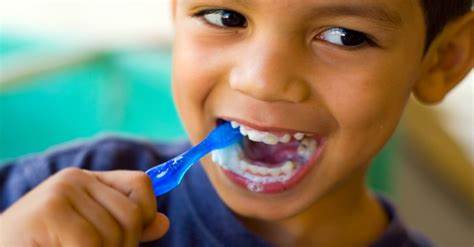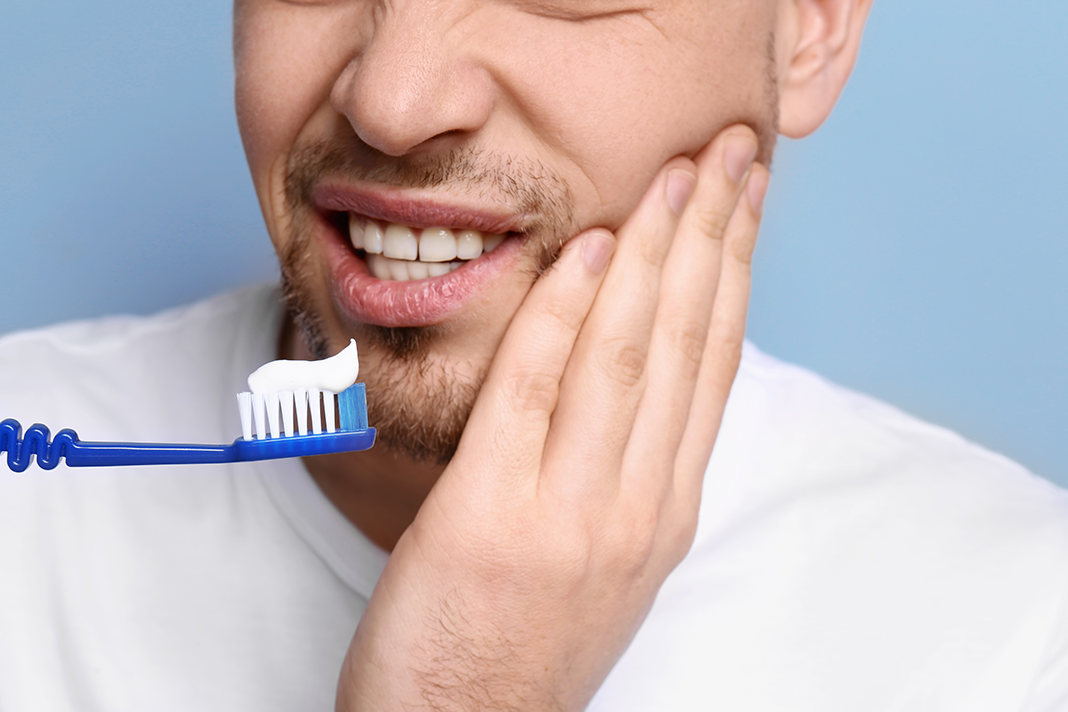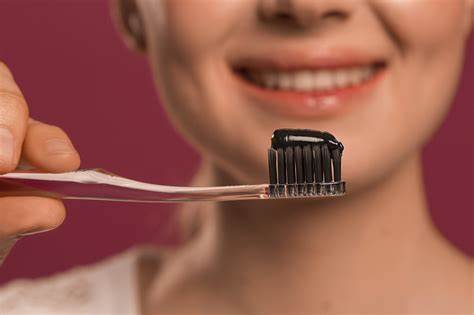Six health tips for healthy white teeth

Poor dental hygiene can make it difficult for anyone to say something as simple as a cheese or a smile. However, if you treat your teeth with contempt, then you can't say cheese or smile, and you are dwarfed by the avalanche of dental and oral diseases you may suffer. Diseases such as gum disease, oral cancer and terrible breathing (usually signs of other oral diseases) can invade your mouth and make your life a hell.
To be fair, this problem - except that it doesn't care about dental hygiene - may also be incorrect.
Are you tired of being tight-lipped in your social circle? Or do you know someone has a serious dental nightmare? Here are some dental hygiene tips to make sure you always have healthy, white teeth.
1. Brush your teeth well
Yes, I am talking about the mouth, not the teeth. The reason is that your teeth are not the only thing in your mouth, you have your gum, your tongue and the palate. Those also need cleaning. When brushing your teeth, place the toothbrush bristles at a 45-degree angle to the gum line so that the bristles come into contact with the teeth and gums. Brush your teeth with up and down movements. After completion, repeat the same steps for the inner surface of the teeth and gums. Then brush your tongue and upper jaw. This will help remove bacteria that cause bad breath. Remember to brush your teeth and gums lightly, don't attack them with bristles, because it does more harm than good. In addition, develop the habit of brushing your teeth at least twice a day, preferably in the morning and evening.
2. Regular flossing
Although regular brushing is good, it is not entirely responsible for cleaning your teeth. Brushing can clean the surface of the tooth, but it is not possible to clean the gap between the teeth. This is the source of the floss. It helps to remove food and other harmful substances that remain between the teeth. If you really care about your dental hygiene (you should), develop the habit of cleaning your teeth at least once a day.
3. Make sure your diet is good for your teeth
For most people, if not everyone, the main reason we eat is because it tastes good. But have we thought about the impact of these different foods or snacks on our teeth? Foods such as nuts, fruits (such as apples), cheese, chicken and vegetables are very friendly to the teeth. What you need to know about cheese is that it will cause your salivary glands to secrete more saliva and neutralize the acid.
4. Limit soda and alcohol intake
First of all, tobacco is something you should stay away from. Avoiding this can avoid some periodontal complications such as oral cancer. In addition, the things you use to cover up the smell of tobacco, such as candy, tea or coffee, will only double the damage done by tobacco to your teeth. You should also limit the intake of soda and alcohol. They contain phosphorus, a mineral that is important for health. But too many things are harmful, and this also applies to phosphorus. Excessive calcium consumes calcium levels in the body, leading to dental hygiene problems such as tooth decay and gum disease.
Instead, drink some beverages that help strengthen your enamel's strength and moisture, and it's better for your body than any sugary drink. Here's a helpful tip: If you must drink soda or alcohol, use a straw to blot it out to avoid direct contact with your teeth.
5. Regular visit to the dentist
Applying everything described in the previous points is not an excuse for not doing regular dental checkups. All you can do is do your best and leave the rest to the dental specialist. Develop your regular dental check-up and tooth cleaning routines as your schedule allows. Some dental problems may not be recognized by you. Stick to this and save your entire world in the long run.
6. Put some fluoride in your mouth before going to bed
Fluoride helps strengthen the tooth surface, so why wash it off after brushing? For many people, it may not be ideal to put toothpaste residue in your mouth all day. Frankly speaking, this is not logical, because you are likely to commit mistakes in swallowing it in one day.
So brushing your teeth when preparing for work in the morning is not advisable. But before going to bed at night? Now is a good time to do this. Do not rinse the toothpaste with water after brushing, so that fluoride adheres to the tooth surface.
To be fair, this problem - except that it doesn't care about dental hygiene - may also be incorrect.
Are you tired of being tight-lipped in your social circle? Or do you know someone has a serious dental nightmare? Here are some dental hygiene tips to make sure you always have healthy, white teeth.
1. Brush your teeth well
Yes, I am talking about the mouth, not the teeth. The reason is that your teeth are not the only thing in your mouth, you have your gum, your tongue and the palate. Those also need cleaning. When brushing your teeth, place the toothbrush bristles at a 45-degree angle to the gum line so that the bristles come into contact with the teeth and gums. Brush your teeth with up and down movements. After completion, repeat the same steps for the inner surface of the teeth and gums. Then brush your tongue and upper jaw. This will help remove bacteria that cause bad breath. Remember to brush your teeth and gums lightly, don't attack them with bristles, because it does more harm than good. In addition, develop the habit of brushing your teeth at least twice a day, preferably in the morning and evening.
2. Regular flossing
Although regular brushing is good, it is not entirely responsible for cleaning your teeth. Brushing can clean the surface of the tooth, but it is not possible to clean the gap between the teeth. This is the source of the floss. It helps to remove food and other harmful substances that remain between the teeth. If you really care about your dental hygiene (you should), develop the habit of cleaning your teeth at least once a day.
3. Make sure your diet is good for your teeth
For most people, if not everyone, the main reason we eat is because it tastes good. But have we thought about the impact of these different foods or snacks on our teeth? Foods such as nuts, fruits (such as apples), cheese, chicken and vegetables are very friendly to the teeth. What you need to know about cheese is that it will cause your salivary glands to secrete more saliva and neutralize the acid.
4. Limit soda and alcohol intake
First of all, tobacco is something you should stay away from. Avoiding this can avoid some periodontal complications such as oral cancer. In addition, the things you use to cover up the smell of tobacco, such as candy, tea or coffee, will only double the damage done by tobacco to your teeth. You should also limit the intake of soda and alcohol. They contain phosphorus, a mineral that is important for health. But too many things are harmful, and this also applies to phosphorus. Excessive calcium consumes calcium levels in the body, leading to dental hygiene problems such as tooth decay and gum disease.
Instead, drink some beverages that help strengthen your enamel's strength and moisture, and it's better for your body than any sugary drink. Here's a helpful tip: If you must drink soda or alcohol, use a straw to blot it out to avoid direct contact with your teeth.
5. Regular visit to the dentist
Applying everything described in the previous points is not an excuse for not doing regular dental checkups. All you can do is do your best and leave the rest to the dental specialist. Develop your regular dental check-up and tooth cleaning routines as your schedule allows. Some dental problems may not be recognized by you. Stick to this and save your entire world in the long run.
6. Put some fluoride in your mouth before going to bed
Fluoride helps strengthen the tooth surface, so why wash it off after brushing? For many people, it may not be ideal to put toothpaste residue in your mouth all day. Frankly speaking, this is not logical, because you are likely to commit mistakes in swallowing it in one day.
So brushing your teeth when preparing for work in the morning is not advisable. But before going to bed at night? Now is a good time to do this. Do not rinse the toothpaste with water after brushing, so that fluoride adheres to the tooth surface.
YOU MAY ALSO LIKE






